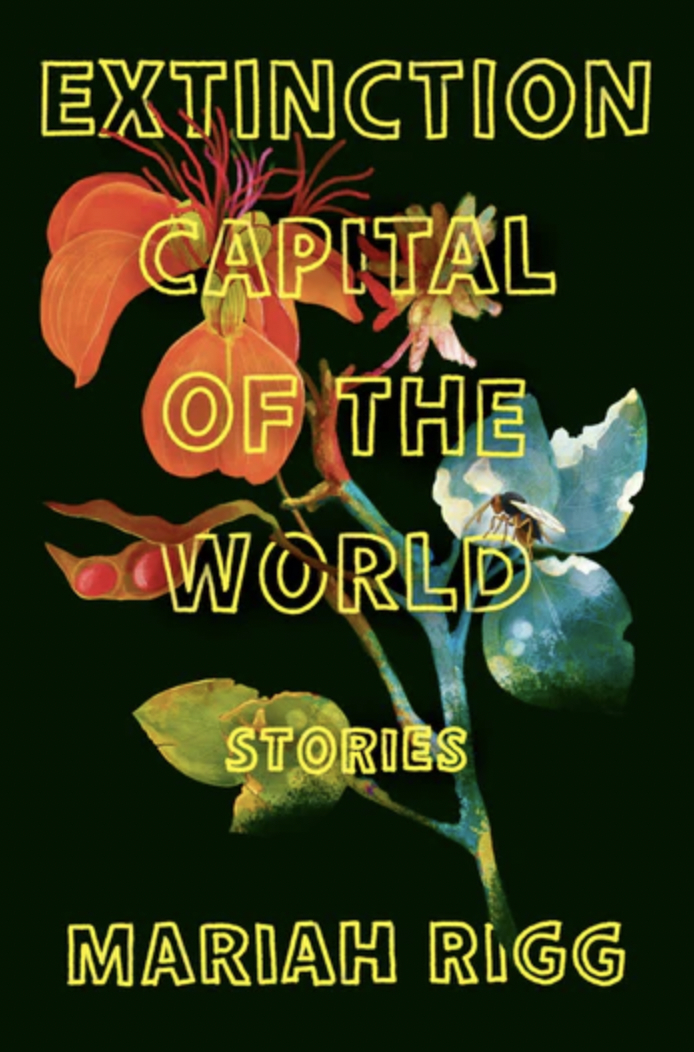By CALEB COY

Nanjing, the furnace of the Yangtse, is a city so big it swallows. I can stroll through the streets and brush by anyone, but a weight presses on me like a singular, enveloping fog that never leaves. Men gather outside my apartment building and smoke in the afternoon. On some days a neighbor calls the Chengguan—the Urban Management Enforcement. They arrive in their white van and white hats and chase the smokers off. The smokers flee like carrion birds shooed away.
My father once had a pet bird when I was younger, although I do not remember what kind of bird it was. It never made a sound. My father worked for the city, and one day he came home bruised and bloodied. He had been beaten up at work, but for what I did not know. I never had the courage to ask him. I remember him telling my mother that they came at him with their round white hats and smacked him. They taunted him, asking him what he was fed on when he was a boy, if he ever had his food taken from him. It was the first time I had ever seen him cry. He spoke of their white hats, how he could not look into their faces and instead looked at their hats. The day after he returned from the hospital, my father released the bird from its cage and cried again when he did not know I was watching.
Every single night an elderly woman sits on the end of the sidewalk downtown. Whether the torrid humidity of summer sets in or the clammy oppression of winter hangs about, she sits there, selling sweet potatoes on the corner. She is in the midst of a great shopping plaza. Daily the people pass her by and enter the food courts. Daily I bike by this woman on the other side of the street and I cannot turn my head. At night I bike past again, and she has not moved. The neon glow that runs along the walls reflects itself on the surface of buildings. It colors the conforming parade of lives, unaware that they are intersecting. The colors refuse to bathe the old woman selling sweet potatoes. She sits in a gray, overcast melancholy. I think it follows me too, but I feel the neon lights on my skin and I see them in the eyes of others.
She sits motionless, meager and gray like a molting marsh gull. The silvery, greased strands of her hair seem to grow out of the gray head-towel wrapped around her scalp and over her wrinkled forehead. Her skin is yellow and parched, like old, acidic paper. Every day she wears the same faded blue apron. Her beady eyes are vacant, her expression is atrophied. If she were to cry her skin would peel off and she would be nothing. It hangs around; it presses down. I name her Grandmother for no reason but to cherish her from a distance. She needs grandchildren, needs to take them to the Burger King and sit them down to eat. She does not get up from the sidewalk.
For this woman to sit and hope is to labor. She twitches in place. She peddles her vegetables with few words. She must not draw attention, but she must sell. Her toothless mouth speaks to customers with what used to know a smile. Her palms are black from sifting the potatoes around in the charcoal of her stove, and I wonder if I am mistaken and that she is wearing gloves. She uses an iron petrol can to bake the potatoes on her rusty, stained stove. I tell myself it keeps her warm in the winter. It does not comfort me in the summer. She puts the potatoes in the stove and slow-roasts them as if expecting someone to come and purchase one. After a time I know that she has no children, that she must live alone.
One night a white truck arrives with a pack of Chengguan servicemen. They wear white helmets and kevlar vests. They lift their fists and speak as if to a dog. They take away her sweet potatoes, the money she has earned for the day, and her rusty oven. The next day I see her sitting beside the road, raw sweet potatoes resting in her lap. She is feeble. There is no sales pitch. No one stops to buy from her, for she only looks like a beggar. They do not see her. She is not here.
I walk to the botanical garden to breathe every day now, away from smog and the smoking men outside my apartment. Here the mountain is behind me and the lake is in front of me. There are no neon lights, and there are no crowds. It is spring and everything tries to blossom. A man I worked with at the machine shop comes to the park with his pet robin. Every day he sits on a bench and hangs the birdcage on the limbs of a nearby tree. To give it some air, he says. Because birds are social creatures, and they need their space. One day my friend tells me he has found another job. He will be relocated and the bird will have no park. He asks me if I could take his robin to the park every day to give it some air. I agree because I can easily fit the cage on the front of my bike.
I know now that my father was too ashamed to tell me that he was a Chengguan. He worked for the urban enforcement in the days before they began wearing white helmets. The day he came home swollen and bruised, he had been picking on the Muslim peddlers in the street and they had had enough. The Muslim peddlers were easy to spot in their white skullcaps, and when they attacked he saw their white skullcaps and not their eyes. He was crying not because he had been beaten, but because he was ashamed to have shooed away the peddlers and taken away their means of feeding their families. I do not know why he released the bird when he came home, but I believe it was to him like an offering. He spent his remaining years fighting cancer, and on the day he died I felt the cage open again.
One afternoon, on my way home from the Metro station, I walk through the neon food court and I see a bare concrete tile glowing yellow from the neon tubes above. Where the old woman used to be. The next day when I bike to the park, I take my friend’s robin with me and I think to myself that today will be the day that I release his robin from the cage. I want to continue carrying him, but the air here is clear and I know that when he leaves me he will find a place to disappear.
Caleb Coy is a freelance writer living in Christiasnburg, VA with his wife and two sons. He has previously been published in Geez Magazine, Connotation Press, and Liminoid Magazine. He is the author of the novel An Authentic Derivative.
Photo courtesy of Flickr Creative Commons user Gu Ming




